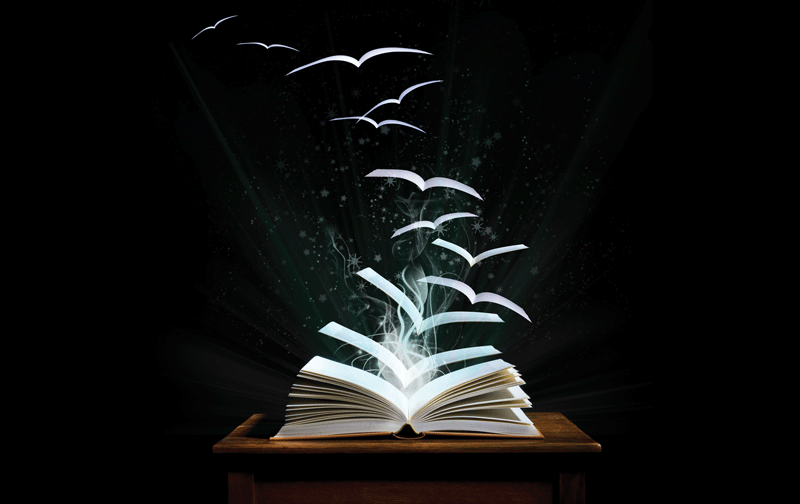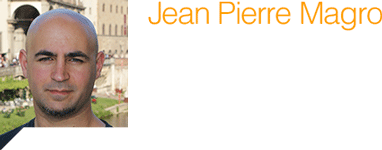Jean Pierre Magro from the Valletta 2018 foundation writes about a great opportunity for writers over the next 5 years.
Stories have flourished throughout the inhabited world, at all times, and under every circumstance. They have inspired the activities of the human body and mind, defined groups and held them together. Stories have guided humanity. Sitting around their campfires, through stories humans learnt how to be warriors, farmers, mothers, sons, and good citizens. Stories brought order to a world fraught with chaos. They gave answers to timeless questions that have haunted humans since the very beginning; “Who am I? Why am I here? What is good and what is evil? What will tomorrow be like? Where did yesterday go? Is there anybody else out there?”
As G. K. Chesteron tells us, stories “are more than true — not because they tell us dragons exist, but because they tell us dragons can be beaten”.
Joseph Campbell (2004) in his book, Pathways to Bliss, uses a beautiful analogy to synthesise our need and appetite for storytelling. Campbell suggests that stories function like the second womb of a kangaroo that protects the young after it is born. In that pouch, the infant attaches itself to the mother’s nipple until it is able to crawl out and walk.
In that same nurturing manner, stories help us develop.
The same drive fuels the multi-billion entertainment industry. In Exodus to the Virtual World, economist Edward Castranova argues that we have begun the greatest mass migration in history. People are moving en masse from the real to the virtual world, interacting and participating in their narratives.
There has never been a more exciting time for storytellers. We are living in a time of immense creativity, with new opportunities for creators appearing nearly every single day.
“People are hungry for stories. It’s part of our very being. Storytelling is a form of history, of immortality too”
Louis Terkel
| From Aristotle to films |
|
Aristotle’s Poetics is, as far as we know, the first ever work of literary theory. Written in the 4th century bc, it is the work of a scholar who was also a biologist, and treats literary works with the detached analytical eye of a scientist. Aristotle examines drama and epic poetry, and how they achieve their effects; he analyses tragedy and the ways in which it plays on our emotions. Many of the ideas he articulates, such as catharsis, have remained in our critical vocabulary ever since. František Daniel was a film director, producer, and screenwriter born in Kolín, Czechoslovakia. He produced over 40 films, including Ján Kadár’s Oscar-winning The Shop on Main Street (Obchod na Korze) (1965). After the Soviet invasion, the prolific filmmaker fled the country and found refuge in the United States. Heading the most prestigious film schools (Columbia and University of Southern California) has been his biggest contribution to filmmaking, particularly American cinema. David Lynch was one of his protégés who specifically mentions a special thank you in Eraserhead, 1977. When Robert Redford founded Sundance Institute in 1981, Daniel was appointed Artistic Director, a guiding post he held for over a decade. He continued to develop scripts and work with students until he died on March 29, 1996, at the age of 69. |
Whether you’re a filmmaker, writer, cartoonist, journalist, or any other kind of storyteller, it is now easier than ever to deliver your story to an audience. New platforms and business models are emerging, gatekeepers are falling and the possibilities are astounding.
The media world right now is a multiplatform world. People and companies are pushing creativity around this fact. It includes all aspects of television, from initial development to script writing, from marketing to distribution, and from technical implementations to audience interaction.
In this revamped world, Malta is still struggling to find its voice. Film and television productions have failed to cross borders.
Valletta 2018’s primary mission is to be a long-term catalyst for culture led regeneration that sees creative activity as the most dynamic facet of Malta’s socio-economic life. Towards this goal, we have invited 3 storytelling heavyweights from the University of Southern California to share their adventures. David Howard, Martin Daniel and Mary Kate O’Flanagan will be joining us for a series of workshops to be held bi-annually over the next 5 years.
Success is not a random thing. It is no shot in the dark. Writing is not just art but it is a mixture of art, creativity, and the science of writing. Basing their public lectures on the František Daniel’s Sequence Method and Aristotle’s Poetics, attendees will be shown how to dissect and build stories.
We are thrilled to be providing this great opportunity for talented Maltese writers to consult and learn from the best, to develop ideas on a professional level and leave with a tangible product in hand – a powerful story with the potential to cross borders.
For further information please contact jeanpierre.magro@valletta2018.org or visit the website: www.valletta2018.org






Comments are closed for this article!